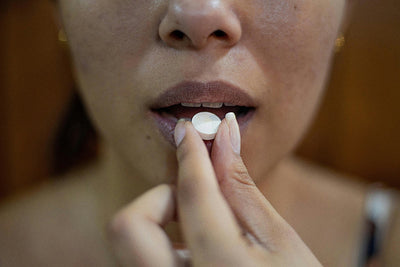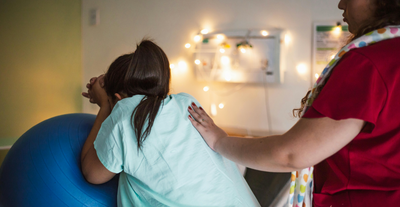How Much Protein Does a Breastfeeding Mom Need?
How Much Protein Does a Breastfeeding Mom Need?
A common concern of breastfeeding moms is whether they are eating enough protein and if the protein they do get is the ‘right kind’. Both of these questions were raised by a recent Consumer Reports article suggesting that most people require less protein than they think.
Proteins are important for immune and neurological function and are the building blocks for tissues, muscle and bones, says Dr. Stephanie Canale, founder of Lactation Lab. “It’s important that when we’re talking about a mother's recommended protein intake, we take into account a breastfeeding mother’s need for protein to recover from the physiological strain of pregnancy and childbirth," she says.
The bottom line is that women of childbearing age should establish protein stores, conserve them and replenish them.
Premature infants require diets that are high in protein and the amount of protein in breastmilk steadily declines as children grow, says Dr. Canale. For example, a mother nursing a 28-week-old premature infant can have almost four times as much protein in her milk as a mother nursing a 2-year-old toddler.
The USDA publishes a free online tool that includes breastfeeding in calculating recommended daily nutritional intake. For example, an active 30-year old mother who is 5’ 4” tall and weighs 120 lbs should consume at least 71 grams of protein per day during the first 6 months of breastfeeding, 27 grams more than if she were not breastfeeding, according to the USDA calculator.
Ohio State University and the World Health Organization both recommend around 17 grams of extra protein per day during the first six months of breastfeeding. Also, some animal studies show that higher protein diets are related to increased milk volume.
Dr. Canale recommends staying safe with more protein, especially as extra protein has no negative health effects and may even have some beneficial effect on milk volume and quality.
Consumer Reports says most adults should aim for a diet that includes a variety of protein sources, such as lean meat, seafood, eggs, yogurt, tofu, quinoa, nuts, and beans. Dr. Canale agrees but adds that breastfeeding mothers should avoid seafood and limit consumption of fish such as tuna and mackerel, as they can have a lot of mercury and other toxins. Protein intake should be spaced out during the day, not jammed into one meal.
Consumer Reports also suggests avoiding using protein supplements and shakes. “Though protein-packed meal-replacement shakes can seem convenient, they're often packed with unwanted sugars and other additives, and they generally lack the key nutrients you get from whole foods. And independent testing has shown that some protein products contain high amounts of arsenic, cadmium, and other dangerous heavy metals.”
Dr. Canale says breastfed babies are more vulnerable to the effects of heavy metals that can find their way into a mother’s milk. “This is one of the reasons I developed our test kits to measure the level of toxins in breast milk as well as protein and other nutritional content,” she says.
If you want to know more about the nutritional content of your own breast milk, you can find tests here or download the Emily’s Care app for more breastfeeding information and support.






